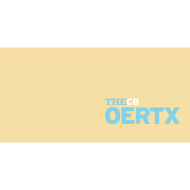
(View Complete Item Description)
The nonprofit organization Creative Commons provides the following definition of open educational resources (OER):
“Open Educational Resources (OER) are teaching, learning, and research materials that are either (a) in the public domain or (b) licensed in a manner that provides everyone with free and perpetual permission to engage in the 5R activities.”
In Texas, Senate Bill 810 (SB 810), which was signed into law in June 2017, further defines OER as follows:
“‘Open educational resource’ means a teaching, learning, or research resource that is in the public domain or has been released under an intellectual property license that permits the free use, adaptation, and redistribution of the resource by any person. The term may include full course curricula, course materials, modules, textbooks, media, assessments, software, and any other tools, materials, or techniques, whether digital or otherwise, used to support access to knowledge.”
The key distinguishing factor of this type of educational resource is the copyright status of the material. If course content is under a traditional, all-rights-reserved copyright, then it’s not an OER. If it resides in the public domain or has been licensed for adaptation and distribution, then it is an OER.
Material Type:
Module
Authors:
Carrie Gits,
Judith Sebesta







